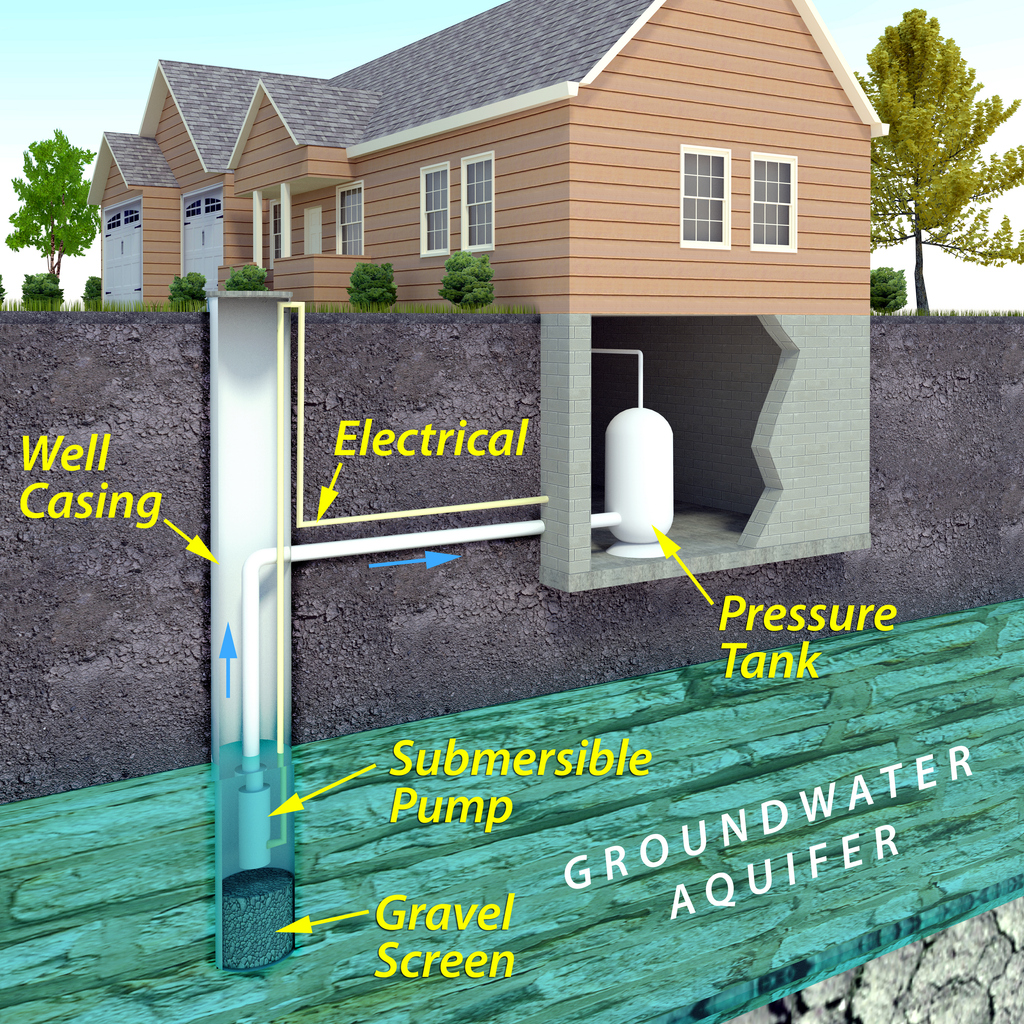
Who’s Responsible for Well Maintenance & Repair in Virginia?

Did you know that 22% of Virginia residents, over 1.6 million people, depend on private wells for their household’s water? Although owning your water supply means you don’t have a water bill, it does come with additional responsibilities.
If your well fails or becomes contaminated, it’s up to you, the homeowner, to repair it, not the city. Your well also needs routine maintenance to ensure you have enough clean, safe water for your family.
What Is the Safe Drinking Water Act?
Water is essential for maintaining public health, so in 1974, congress passed the Safe Drinking Water Act. This legislation protects the nation’s drinking water, ensuring it’s safe, clean, and meets minimum quality standards. It regulates the use of rivers, lakes, streams, groundwater wells, and more, protecting them from natural and artificial contaminants.
The Safe Drinking Water Act includes regulation for city and commercial wells but doesn’t apply to private wells that serve less than 25 people. This means the well owner is responsible for maintaining their well to ensure good water quality and pressure.
Signs You Need Well Service
A well features many components that can fail with age and wear, from the pump and pressure switches to the piping and well casing. These are some of the most common signs that your well needs to be serviced:
- Your well water has an abnormal taste or smell.
- Your well water is cloudy or discolored.
- Your well water has sand or silt floating in it.
- You have low water pressure, causing your faucets to sputter.
- The pump runs constantly or cycles on and off frequently
- You hear strange noises like buzzing from the pump or gurgling due to air in the lines.
- Your electricity costs are suddenly higher than normal.
You need to call a well plumber as soon as you notice any of these problems to avoid water contamination or damage to the well equipment.
Common Well Problems & Solutions
Most well problems can be resolved with basic maintenance and repairs, though a few may require more costly fixes. Here are the most common well problems and solutions:
Low Well Water Pressure
Low water pressure is often caused by sand, silt, or other debris clogging screens or filters in the well system. Have these filters cleaned or replaced.
Clogged aerators on the faucets or mineral accumulations in the faucets themselves can also cause reduced water pressure, and they may need to be replaced.
A faulty or incorrectly adjusted pressure switch or a failing well pump can also cause low pressure. It’s best to call a professional plumber to find the cause of water pressure issues.
Rotten Egg Odors
Rotten egg or sulfur odors are often caused by iron bacteria or hydrogen sulfide. A UV water sterilizer or a chlorination system can eliminate bacteria, viruses, and other microorganisms from your water, leaving it healthy and safe.
If your water contains hydrogen sulfide, you must disinfect the well and install a specialized filtration system.
Cloudy Well Water
Cloudy water means it contains high amounts of sediment and other debris. This can include sand, silt, clay, bacteria, or viruses, so it’s important to have your water tested.
Depending on the results, you may need sediment filters to remove large debris, activated charcoal filters to remove tastes and odors, or a reverse osmosis system to remove smaller particles. Chlorination systems or UV water sterilizers can eliminate any microorganisms.
Discolored Well Water
If your water is discolored or leaves behind stains in your sinks, bathtubs, or other fixtures, it may have high levels of iron, tannins, acids, minerals, or hydrogen sulfide.
Water softeners can help reduce the mineral and tannin content in your water, while a chlorination system can reduce iron. Hydrogen sulfide and acids may require specialty treatments, such as well disinfection or sodium carbonate infusions.
Sediment in Well Water
Excessive amounts of sand and silt can make your water look and taste unpleasant. Make sure any screens or filters in your well system are clean.
You could also install a multi-stage filtration system that removes large particles first, followed by smaller particles with each successive stage.
Well Pumping Air
When your well is pumping air, it usually means the pump has lost its prime. This can indicate a plumbing leak, so if re-priming the pump according to the manufacturer’s instructions doesn’t help, you need help from a plumber.
Pumping air can also be caused by a failing pump, low water in the well, or gas pockets, all of which will need the help of a professional to resolve. Gas pockets can be flammable, so it’s important to act promptly if you suspect that’s the cause.
How Do You Maintain a Well?
Regular maintenance is essential to keep your well clean, safe, and reliable, and it should be performed by a qualified professional. Maintenance tasks include:
- Annual inspections for mechanical problems, cleanliness, and contamination
- Annual water tests to ensure the quality and safety of your water supply
- Periodic inspections of the well cap to ensure it’s secure and sealed
- Routine inspections for proper water pressure and flow
- Regular screen and filter cleaning or replacement
- Routine service for chlorination, water softening, reverse osmosis, or UV sterilization systems
Schedule Well Pump Services in Charlottesville, VA
When you need a skilled team to handle all your well service needs in the Charlottesville area, turn to the expert plumbers at Albemarle Heating & Air. We’ve served Charlottesville homeowners since 1988 and offer top-rated service backed by:
- Upfront pricing
- A fully licensed and insured team
- Trained, experienced, and background-checked technicians
- Peace of mind guarantees
- Free estimates on replacements and service calls
Call today to schedule well pump services in Charlottesville or the surrounding areas.
CHARLOTTESVILLE AND SURROUNDING AREAS Albemarle County | Fluvanna County | Louisa County | Nelson County | Augusta County | Madison County | Greene County | Orange County











